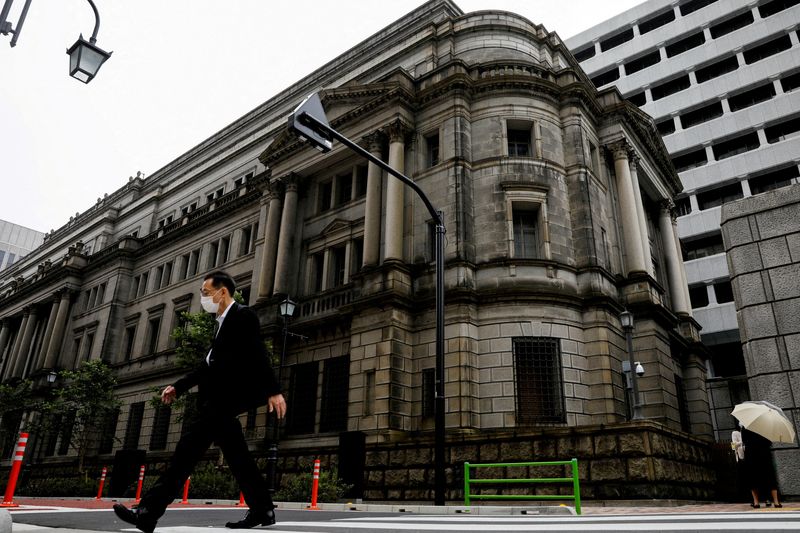TOKYO (Reuters) -Japan's government is set to revise a decade-old joint statement with the Bank of Japan (BOJ) that commits the central bank to achieve its 2% inflation "at the earliest date possible," Kyodo news agency reported on Saturday, citing government sources.
With the revision, Prime Minister Fumio Kishida will aim at making the BOJ's 2% inflation target a more flexible goal with room for allowance, Kyodo reported.
Kishida will discuss details on how to revise the statement with a new BOJ governor, who will succeed incumbent Haruhiko Kuroda when his term ends in April, according to Kyodo.
Specifically, the new statement could remove the phrase "at the earliest date possible," or change the language to clarify that the 2% inflation target is a medium- to long-term goal rather than one that needs to be achieved quickly, Kyodo said.
The revision could lead the BOJ to tweak its ultra-loose policy to address the cost of prolonged easing, such as the yen's sharp fall that inflates the cost of imports, Kyodo said.
Under strong pressure by then Prime Minister Shinzo Abe to take bolder steps to beat deflation, the BOJ signed the joint statement with the government in 2013 and committed itself to achieve its 2% inflation target "at the earliest date possible."
But years of heavy money printing by the BOJ, led by Kuroda who was hand-picked by Abe, failed to fire up inflation to its 2% target and forced the central bank to shift to a controversial policy capping the 10-year bond yield around 0%.
While inflation has exceeded the BOJ's 2% target due largely to rising raw material costs, Kuroda has stressed the need to keep ultra-loose policy to sustainably hit the price goal.
But the BOJ is dropping signs it could consider phasing out Kuroda's stimulus once he steps down next year, if wages perk up and major economic risks remain contained, sources have told Reuters.
The prime minister's office and the BOJ were not immediately available to comment on the Kyodo report.

Appearing in a parliament session on Nov. 28, both premier Kishida and BOJ governor Kuroda said they so need to revise the current joint statement.
Markets are rife with speculation the BOJ will tweak its ultra-loose monetary policy under a new central bank governor next year.